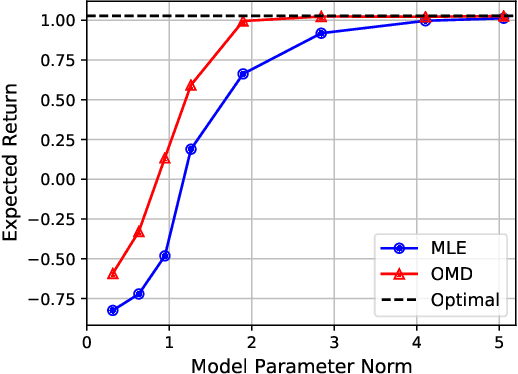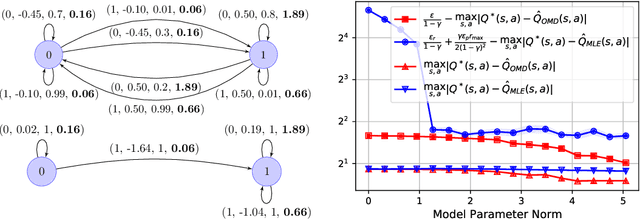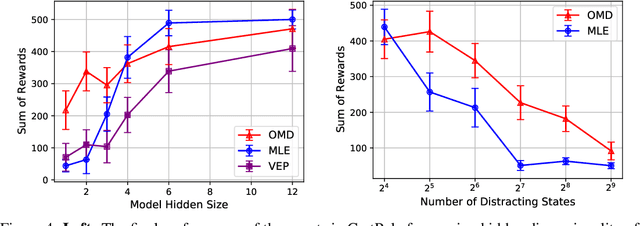Control-Oriented Model-Based Reinforcement Learning with Implicit Differentiation
Paper and Code
Jun 06, 2021



The shortcomings of maximum likelihood estimation in the context of model-based reinforcement learning have been highlighted by an increasing number of papers. When the model class is misspecified or has a limited representational capacity, model parameters with high likelihood might not necessarily result in high performance of the agent on a downstream control task. To alleviate this problem, we propose an end-to-end approach for model learning which directly optimizes the expected returns using implicit differentiation. We treat a value function that satisfies the Bellman optimality operator induced by the model as an implicit function of model parameters and show how to differentiate the function. We provide theoretical and empirical evidence highlighting the benefits of our approach in the model misspecification regime compared to likelihood-based methods.
 Add to Chrome
Add to Chrome Add to Firefox
Add to Firefox Add to Edge
Add to Edge